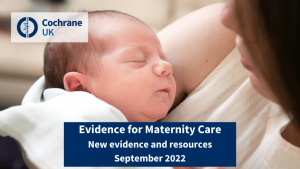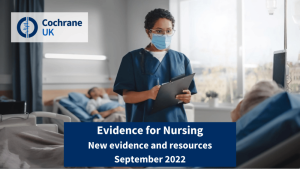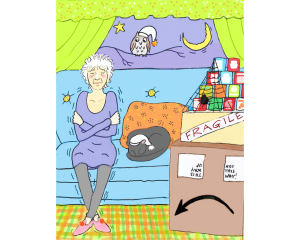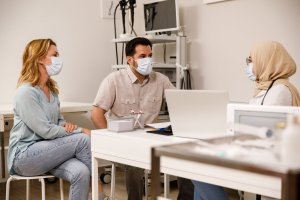On this page, you can find our blogs about different aspects of stroke. Many of them include research evidence and also reflections from people affected by stroke themselves, health professionals involved in the care of people with stroke and stroke researchers. There are also links to helpful resources.
Tag: patient experience
Menière’s disease: experience, evidence gaps & treatment choices
In a blog for people with Menière's disease and those supporting them, Sarah Chapman looks at the latest evidence on treatments and talks to her husband Tim about living with Menière’s and making choices about treatments, and to researcher Katie Webster and Ear, Nose and Throat doctor Martin Burton, who are both authors of new Cochrane Reviews on treatments for Menière's.
Evidently Cochrane 2022: a look back at a year of blogs
In the final Evidently Cochrane blog of the year, Sarah Chapman from Cochrane UK takes a look back at some highlights and changes from 2022.
Giving information after stroke: what’s helpful?
A doctor and a stroke survivor reflect on the Cochrane evidence about giving people information after stroke and on their own experiences.
Making health decisions: things that can help
In a blog for anyone making health decisions, Sarah Chapman looks at some key things that can help you make a choice that feels right for you. Included here are links to good resources.
Evidence for Maternity Care: new evidence and resources – September 2022
The latest evidence and resources for midwives and clinical support staff.
Evidence for Nursing: new evidence and resources – September 2022
The latest evidence and resources for nurses and clinical support staff.
Bell’s palsy: facing up to uncertainty
What would you do if you woke up unable to move half your face? This blog shares Olivia's story, the challenges of Bell's palsy & what we know about treatments
My OCD journey 2: learning and compassion in tough times
In this blog, Karen Morley, who in 2018 wrote for Evidently Cochrane about her experiences of OCD (obsessive compulsive disorder) and how evidence helped her, tells us what has happened since, including the impact of the COVID-19 pandemic on her mental health, the challenges, and things she has found empowering.
Becoming a Cochrane Review author: trust me, I’m a patient!
Karen Morley reflects on her experience of becoming a consumer author on a Cochrane Review, using her lived experience of Obsessive Compulsive Disorder (OCD) and considers the questions it raised for her about Public Involvement in research.
Glioblastoma: honest conversations for shared decision-making
Peter Buckle, a patient advocate whose wife died of glioblastoma, and Professor Scott Murray, GP and palliative care innovator, call for honest communication between health professionals and people with glioblastoma and their families, enabling shared decision-making and planning, with a focus on quality of life. They give sources of information and support for patients and families, and practical suggestions for clinicians.
Language matters: the use and misuse of language when talking about long-term conditions
This blog summarises a conversation hosted on Twitter by Cochrane UK, inviting views on the use and misuse of language when talking about long-term conditions.












